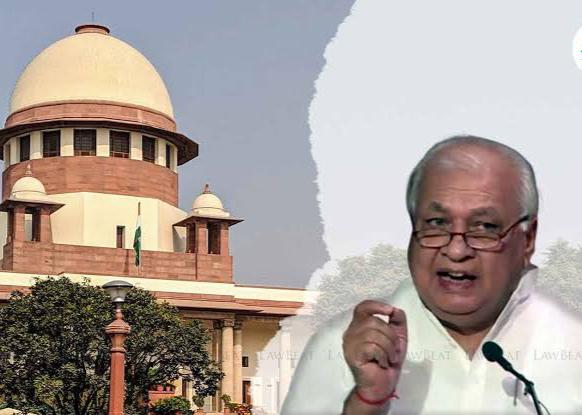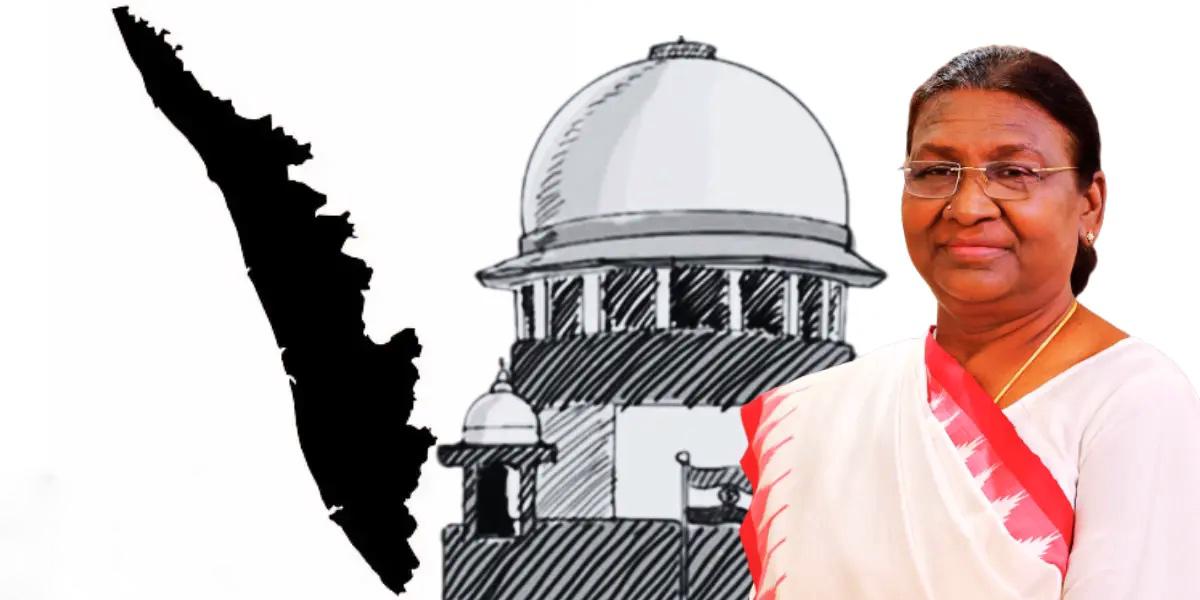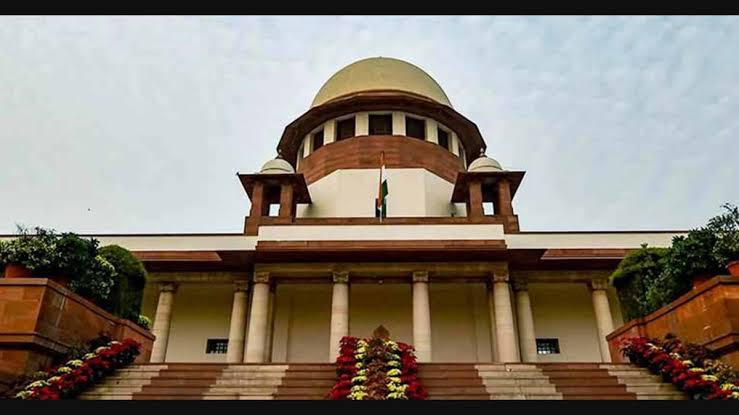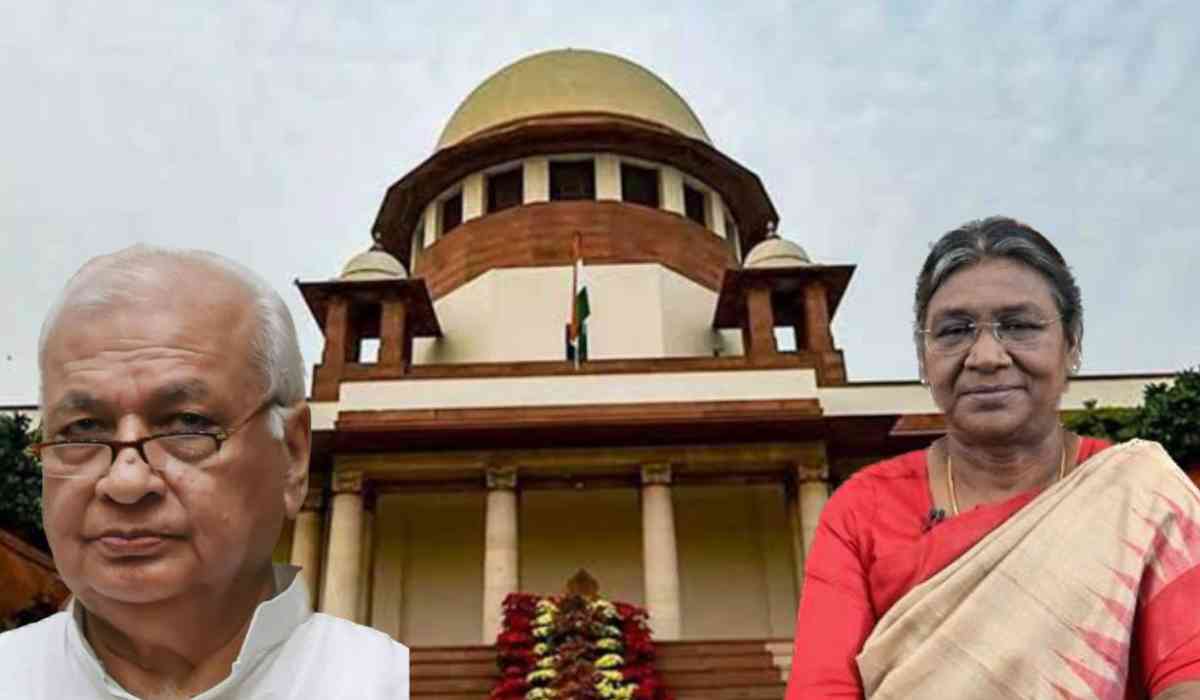On March 23, the Kerala Government took an unprecedented step by filing an appeal in the Supreme Court against President Droupadi Murmu's decision to withhold assent for four out of the seven bills referred by the Kerala Governor passed by the Kerala Legislature.
In its writ petition filed under Article 32 of the Constitution, the State also contested Governor Arif Mohammad Khan's decision to refer the bills to the President, arguing that none of the bills pertained to Centre-State relations, and didn't require Presidential assent.
The State government of The CPI(M)-led Left Democratic Front (LDF), has listed the Secretary to the President, the Kerala Governor and the Additional Chief Secretary to the Governor as respondents in the writ petition filed before the Supreme Court.

Photo Credits: Law Beat
The Plea filed by the State Government
The State said in the writ petition, "It has to be pointed out that the President, which would effectively mean the Council of Ministers, aiding and advising the President, has not given any reason whatsoever for withholding assent for four out of the seven Bills reserved by the Governor. This is a highly arbitrary action, violating Article 14 of the Constitution, as well as Article 200 and 201 thereof."
The state government said that on February 23 and 29, the Ministry of Home Affairs informed it that the president has withheld assent to four of the seven billsUniversity Laws (Amendment) (No. 2) Bill, 2021, the Kerala Co-operative Societies (Amendment) Bill, 2022, the University Laws (Amendment) Bill, 2022, and the University Laws (Amendment) (No. 3) Bill, 2022.
The plea filed by Advocate CK Sasi said the Governor's reservation of the Bills after keeping them pending for up to 24 months is seen as a deliberate attempt to evade his constitutional duties under Article 200. Thus, referring the Bills to the President is deemed unconstitutional by the State.
The State argues that the Union Government's advice to withhold assent to bills passed by the State Legislature, despite being within the State's jurisdiction, disrupts the federal structure and undermines the State's authority. The Plea highlighted that Governor's decision "subverted" the functioning of the state legislature, rendering its existence "ineffective and otiose.

Photo Credit: The Law Advice
"The actions of the Union Government, in advising the President of India to withhold assent to Bills which had been passed by the state legislative assembly as long as 11-24 months back, and which were wholly within the domain of the state government, subverts and disrupts the federal structure of the Constitution of India, and is a grave encroachment into the domain entrusted to the state under the Constitution," "The very existence of the legislative assembly of the State has been rendered meaningless by the Governor, though the Governor is a part of the Legislative Assembly," it said.
"Additionally, the actions impugned defeat the rights of the people of the State of Kerala under Article 21 (protection of life and personal liberty) of the Constitution, by denying them the benefits of welfare legislation enacted by the State Assembly," it said.
"Whether the reservation for the President is as a result of this (criticism) or not, to refer Bills which have been pending before the Governor for as long as two years to the President is a grave injustice to the post that the Governor holds and to his constitutional duties as well. One can only say that at no cost was the Governor prepared to allow the Government of Kerala and the State legislative assembly to function by the Constitution and the laws," the plea added.
The state government pointed out that the governor fulfilled his constitutional duty only after the state had approached the Supreme Court last year. Initially, the governor granted assent to one bill, then the State filed a writ petition in the Supreme Court challenging the Governor's inaction. After the Supreme Court issued notice on the petition on November 20, the Governor referred the seven bills to the President. Subsequently, the president withholds assent for four of these bills. During the hearing on November 29, the Supreme Court criticised the Governor for delaying action on the bills.
"The bills include public interest bills which are for the public good, and even these have been rendered ineffective by the Governor not dealing with each one of them as soon as possible as required by the proviso to Article 200," the plea said.

Reliefs Demanded by the Kerala Government
The Plea demands relief from the Supreme court to direct the Governor of the State of Kerala to grant assent to the six bills viz. 1) University Laws (Amendment) (No. 2) Bill, 2021 - Bill No. 50, 2) University Laws (Amendment) Bill, 2021 – Bill No. 54, 3) the Kerala Co-operative Societies Amendment Bill, 2022 - Bill No. 110, 4) the University Laws (Amendment) Bill, 2022 - Bill No. 132, 5) The University Laws (Amendment) (No. 2) Bill, 2022 - Bill No. 149, and 6) The University Laws (Amendment) (No. 3) Bill, 2022 - Bill No. 150 forthwith; and
Additionally, declare that the act of the Governor of Kerala in reserving the seven bills viz. 1) University Laws (Amendment) (No. 2) Bill, 2021 - Bill No. 50, 2) University Laws (Amendment) Bill, 2021 – Bill No. 54, 3) the Kerala Co-operative Societies (Amendment) Bill, 2022 - Bill No. 110, 4) the University Laws (Amendment) Bill, 2022 - Bill No. 132, 5) Kerala Lok Ayukta (Amendment) Bill, 2022 – Bill No.133, 6) The University Laws (Amendment) (No. 2) Bill, 2022 - Bill No. 149, and 7) The University Laws (Amendment) (No. 3) Bill, 2022 - Bill No. 150 for the consideration of the President was illegal and lacks in bona fides.
(Inputs from Agencies)
©️ Copyright 2024. All Rights Reserved Powered by Vygr Media.






















